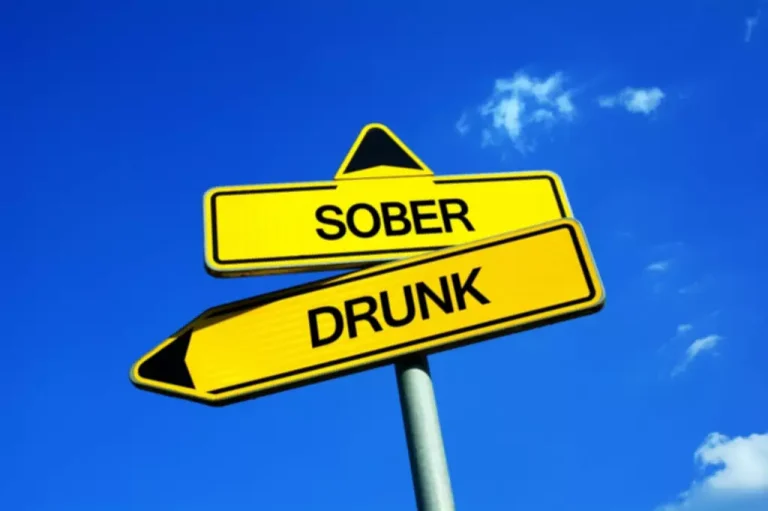
In navigating a relationship between a covert narcissist and someone with BPD, it’s crucial to recognize the toxic dynamics at play. By understanding the traits of both individuals and working on communication and boundaries, there’s hope for improvement. Yes, therapists can spot a covert narcissist by observing their manipulation tactics, lack of empathy, blame-shifting behavior, and grandiose sense of self. Understanding these dynamics is crucial in navigating relationships between individuals with these personality disorders. One startling statistic reveals that 70% of individuals with narcissistic personality disorder also struggle with substance abuse. While narcissism is a personality disorder and alcoholism is an addiction, narcissists and alcoholics share several characteristics.
- It’s possible to have a narcissistic personality disorder (NPD) as well as an alcohol use disorder (AUD).
- Overt behaviors are those that can be easily observed by others, such as those of the traditional narcissist described earlier.
- We understand mental health challenges firsthand and support your pursuit of well-being with compassion.
- Although people with AUD may relapse or have treatment setbacks, they can recover from the disorder.
- This can make treatment more challenging than it would be to treat each issue separately.
- Seeking support from a therapist or a support group can provide valuable insights into the dynamics of the relationship and help process complex emotions.
- That’s what makes covert narcissism a little more dangerous and a little more difficult to manage.
Recognizing Covert Narcissist Traits
The narcissistic alcoholic might blame others for their drinking or use their addiction narcissism and alcoholism as an excuse for poor behavior. Narcissistic individuals typically struggle with empathy, making it difficult for them to understand or relate to others’ feelings. This lack of empathy can be further diminished by alcohol use, creating a significant emotional disconnect in relationships. As narcissists, daughters may disrespect, belittle, and manipulate their mothers. They often seek attention, validation, and control, disregarding their mothers’ feelings and needs.
What Happens When a Covert Narcissist Drinks Alcohol?

Since one of the hallmark traits of narcissistic personality disorder is lack of empathy, the covert narcissist is not going to be emotionally responsive to their partner in a healthy way. In comparing covert and communal narcissists, it becomes evident that their fundamental differences lie in their outward behaviors and underlying motivations. Covert narcissists tend to be more focused on their own needs and desires, often feeling entitled to special treatment. They exhibit a lack of empathy and genuine concern for others, using manipulative tactics like gaslighting and blame-shifting to maintain control. The associations between covert narcissism and alcohol abuse can result in heightened psychological distress and interpersonal difficulties.
- Understanding the manipulative tactics and gaslighting techniques commonly employed by covert narcissists is crucial when devising strategies to deal with their behavior.
- Threatened egotism was listed as a factor that motivated increased alcohol use.
- Their core deep-seated shame and fears and their focus on meeting their own needs are masked by an array of more subtle control and manipulation techniques than are typically observed in the overt narcissist.
- People with NPD may use alcohol as a coping mechanism to numb their underlying insecurities or boost their sense of grandiosity.
- While it can be more difficult to recognize, covert narcissism can be just as destructive as more overt narcissistic behaviors.
Create a Healthy Distance
Pathways Recovery Center helps families and friends stage effective interventions for loved ones struggling with AUD and NPD. In conclusion, it’s crucial to recognize the connection between covert narcissism and addiction in order to address the underlying issues effectively. When a covert narcissist experiences upset, it often stems from threats to their fragile ego. Criticism, feelings of inferiority, or challenges to their sense of superiority can trigger defensive or withdrawn reactions. You may also find it helpful to talk to a therapist about your experiences.

Covert narcissism traits
Seeking support, focusing on personal strengths, and promoting truth and harmony within the family can aid in mitigating the detrimental effects of covert narcissistic manipulation in custody battles. The ability to empathize is a key factor that distinguishes those with BPD from individuals with covert narcissism. These contrasting traits can lead to power imbalances within the relationship, with the covert narcissist exerting control through manipulation and gaslighting tactics. In understanding covert narcissists, their seemingly normal exterior often masks manipulative tendencies and a lack of empathy towards others. These individuals, who may initially appear shy or introverted, exhibit traits that can be detrimental to interpersonal relationships. Detecting covert narcissistic alcoholic signs can be challenging, but warning signs include manipulation, lack of empathy, and a need for constant validation.
- Advancing our understanding of these complex, intertwined conditions can lead to more effective interventions and improved quality of life for affected individuals.
- The achievement-drive-focused narcissist will ignore or simply not acknowledge their partners stress or fatigue, their physical ailments or emotional needs.
- A covert narcissist experiences the same insecurities as an overt narcissist, but internalizes their self-importance, often while hyper-focusing on their need for attention.
- Talk therapy can be an effective treatment for people with narcissistic personality disorder.
What Hurts a Covert Narcissist the Most?

People with narcissistic traits often have trouble maintaining healthy relationships. They may struggle with jealousy, have a sense of entitlement, and display manipulative behaviors. Narcissism is a complex personality trait characterized by an inflated sense of self-importance and a deep need for attention and admiration. It exists on a spectrum, ranging from healthy self-esteem to pathological narcissistic personality disorder. The enabler parent of a covert narcissist is a key figure in perpetuating the narcissistic behavior of the other parent.
What’s the outlook for people with NPD or AUD?
They can come across as sweet and innocent, softly spoken, caring, sensitive, shy, complimentary and/or helpful. They may also appear open about their vulnerabilities – however, unlike most people, this is ultimately with an aim of control and manipulation. Their core deep-seated shame and fears and their focus on meeting their own needs are masked by an array of more subtle control and manipulation techniques than are typically observed in the overt narcissist. It can be hard to discern even from a clinical perspective if alcoholism is separate from narcissism. The takeaway is that the individual needs treatment to make significant changes in their life. Depending on the severity of the problem, residential or inpatient treatment may be necessary.
Recognizing and Addressing Narcissistic Traits

Passive aggression refers to expressing criticism, judgment, or negative emotions in such a way that isn’t easy to pinpoint or describe by others. If done with the purpose of manipulating or hurting you, passive aggression can be considered a type of covert abuse, particularly if done persistently. Playing the victim may involve saying or acting like you’ve caused them harm and implying that you need to repair the damage. Narcissistic Personality Disorder (NPD) is a disorder in which someone acts selfishly and thinks highly of themselves.
Are Alcoholics Usually Narcissists?
All personality and substance use disorders are diagnosed based on a strict set of criteria described in the DSM-5. While there is room for interpretation, a person with NPD and/or AUD must meet a minimum standard before a diagnosis can be delivered with confidence. NPD and AUD frequently co-exist and can increase the effects of each other. People with a pattern of narcissism often turn to alcohol to reinforce a false sense of grandiosity. People with alcohol use disorder, also known as alcoholism, can display patterns of narcissism, including self-absorption and an underlying craving for admiration. A 2014 study looking at infidelity also found that people with narcissism were more likely to be unfaithful during a relationship.
